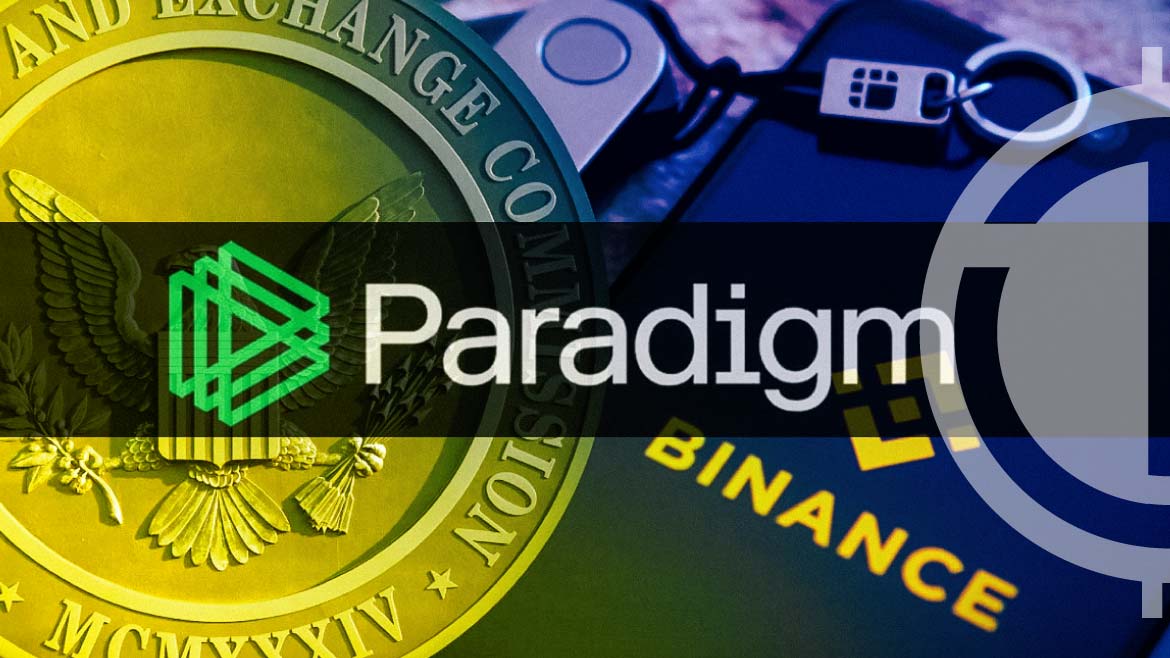
In a bold and unexpected move, Paradigm, a well-known crypto research firm, has entered the fray to support Binance, its American counterpart Binance.US, and the global CEO, Changpeng Chao. They are embroiled in an ongoing legal battle with the US Securities and Exchange Commission (SEC). This development was highlighted by Wu Blockchain, a prominent figure in the cryptocurrency industry known for providing valuable insights and in-depth analysis through a tweet.
Paradigm filed documents in the SEC Binance case criticizing the SEC for exceeding its authority. Paradigm said gold, silver and art can increase in value, but that does not mean selling them constitutes a securities transaction. Circle also intervened in the SEC's lawsuit…
— Wu Blockchain (@WuBlockchain) September 30, 2023
This legal battle ignited in June when the SEC unleashed a barrage of allegations against the defendants. These allegations included claims of operating unlicensed exchanges and broker-dealers, setting the stage for a contentious legal showdown.
Paradigm’s recent amicus brief, filed on September 29, takes direct aim at the SEC’s legal tactics, boldly accusing the regulatory body of stretching its authority beyond reasonable bounds. Paradigm, an entity that emphatically asserts its lack of vested interest in the defendants, contends that the SEC is attempting a rather audacious maneuver. They allege that the SEC is using the allegations in the lawsuit against Binance and its co-defendants as a springboard to rewrite established law, all while sidestepping the customary rulemaking process.
At the heart of Paradigm’s counterargument lies the SEC’s assertion that an investment contract does not necessarily require an actual contractual agreement, a claim vehemently disputed by the research firm. Paradigm adamantly maintains that existing case law clearly stipulates that an investment contract hinges upon a contractual arrangement that guarantees the future appreciation of assets. In the realm of cryptocurrencies, Paradigm boldly asserts that the SEC falls short in providing such an agreement, particularly concerning tokens traded on secondary markets.
But Paradigm’s concerns go beyond the immediate implications of the case. They warn that a favorable ruling for the SEC could potentially expand the jurisdiction of US securities laws to encompass a wide array of assets, including precious metals like gold and silver, as well as artworks. These assets, typically acquired with the anticipation of future price appreciation, have historically not been regarded as investment contracts.
In a resounding argument against the SEC, Paradigm emphasizes the need for the establishment of clear and comprehensive crypto regulations. Such regulations would empower the SEC to effectively oversee the rapidly growing and politically significant crypto space.
They contend that the SEC’s reliance on the outdated Howey Test, a legal benchmark that has endured for 77 years, is ill-suited to provide the much-needed clarity required to regulate the dynamic and diverse crypto industry. In Paradigm’s view, congressional intervention is the necessary step to rectify what they perceive as an unreasonable interpretation of “investment contracts” within the crypto realm by the SEC.
Share:
X